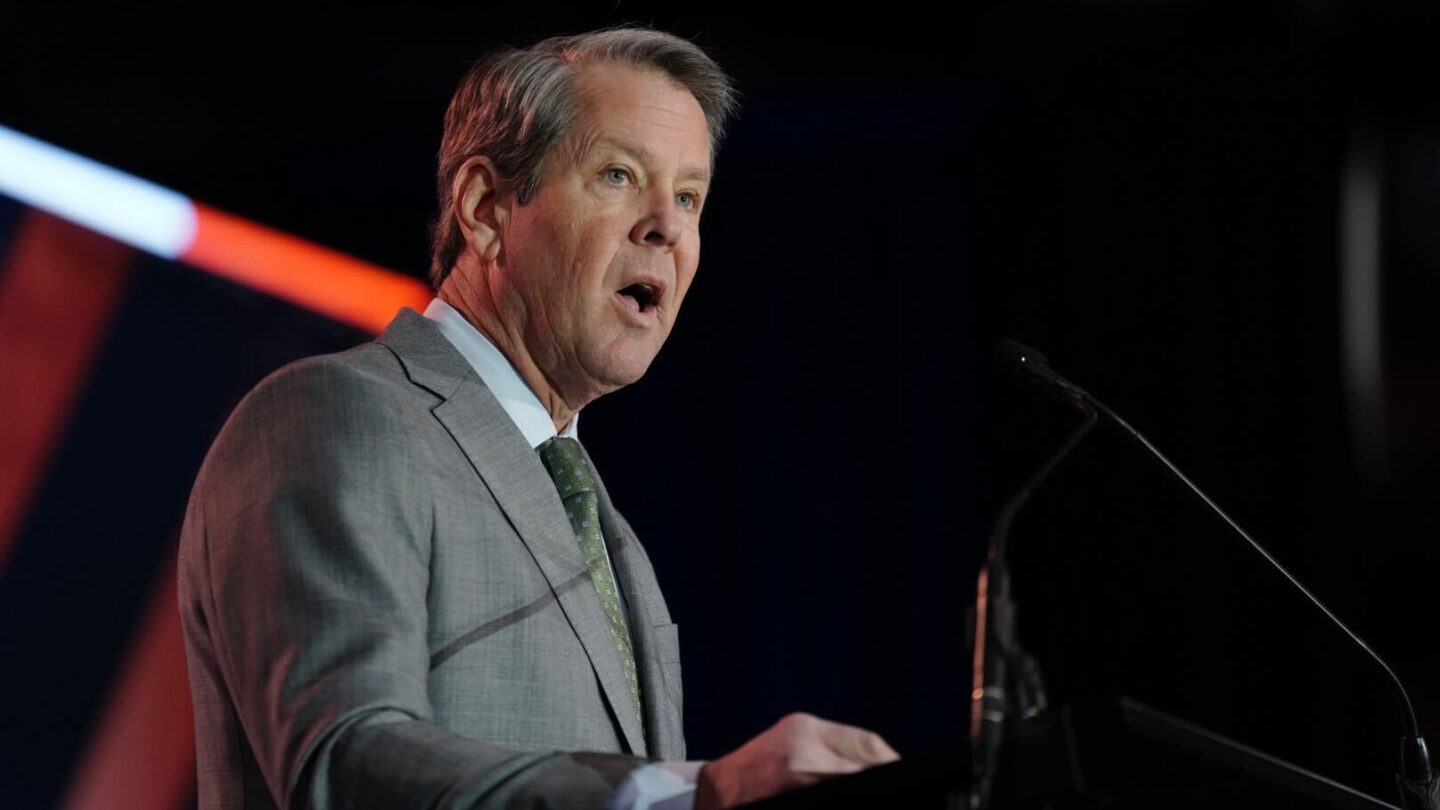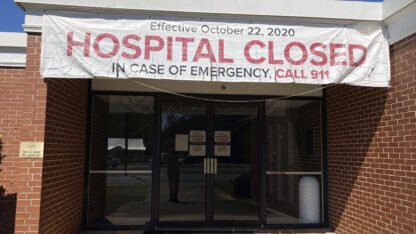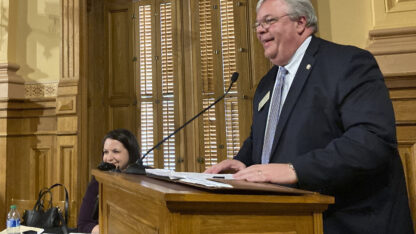Georgia Gov. Brian Kemp told a business group on Wednesday that he’ll propose $1.8 billion in additional spending on infrastructure, as well as expand health care training for dentists and physicians, showing how the state’s $11 billion in surplus cash is giving the Republican the power to spend big even as state revenues slow.
Kemp also told the Georgia Chamber of Commerce, meeting at Mercedes-Benz Stadium in Atlanta, that he’ll need more than a year to follow through on an earlier pledge to limit lawsuits, and that he’ll also make it harder for the workers to join a labor union at the big developments Georgia is subsidizing.
“If we want to maintain the incredible position we’re in today for another generation, we need to make smart moves right now to secure that future,” Kemp said, arguing his plans would keep Georgia’s economy humming.
The prepared text of Wednesday’s speech by the second-term incumbent was a meaty preview of his Thursday State of the State address, with Kemp promising more to come.
“Tomorrow, I will share even more announcements on how we will build on these successes,” Kemp said of the Thursday speech, where he’s likely to propose pay raises for public employees and teachers.
Kemp says he wants to allot $1.5 billion to the Georgia Department of Transportation before June 30 to speed up work on the agency’s project list and establish a freight infrastructure program. Of the money, $200 million would go to cities and counties, bumping up the amount the state sends local governments to maintain their own roads and bridges.
Kemp said he also wants to invest another $250 million in the Georgia Environmental Finance Authority, which loans money to local governments for water and sewer projects. Kemp earlier gave out $442 million in water and sewer grants using federal COVID-19 aid, but officials have said those grants didn’t go as far as many had hoped.
The governor also said he wants to allot another $50 million before June to a fund he created to develop land for housing, and then spend at least $6 million a year on such grants to local governments. Lawmakers earlier allotted $35.7 million requested by Kemp for “rural workforce housing.” The state has spent more than $17 million of that money so far.
Kemp announced he wants to spend $178 million to create a new public dental school at Georgia Southern University in Statesboro, in addition to the current Dental College of Georgia at Augusta University. Kemp also said he wants to spend $50 million to expand a medical school at the University of Georgia in Athens.
“With these new assets on the way, we will further address the growing need for health care professionals in our state,” Kemp said.
Like he did before the chamber in Athens this summer, Kemp argued that lawsuits are driving up insurance premiums and retarding business, saying he wants to lower the prices individuals and businesses pay for insurance.
“I look forward to introducing legislation this year that will reflect my priorities to stabilize the market for insurers, stabilize premiums for Georgia’s families, and level the playing field in our courtrooms so we can continue to create even more quality, good-paying jobs,” he said.
But Kemp now says the effort will take more than one legislative session, promising to take “the first step” this year. That could be a recognition that legislative support for such efforts has been lukewarm in recent years.
Kemp also promised to make it harder for workers to form unions to bargain with employers in Georgia, echoing the chamber’s own agenda. Kemp says he wants a law that would bar any business that benefits from state business incentives from allowing employees to unionize without a formal election. Now, businesses can accept unions without an election.
Only 4.4% of Georgia workers are union members, the eighth lowest union rate among states. Unions did win a notable victory in Georgia in May when workers at school bus maker Blue Bird Corp. voted to be represented by the United Steelworkers.
Kemp portrayed the move as protecting workers’ “right to opportunity” from President Joe Biden’s pro-union agenda and outside forces “who want nothing more than to see the free market brought to a screeching halt.”









